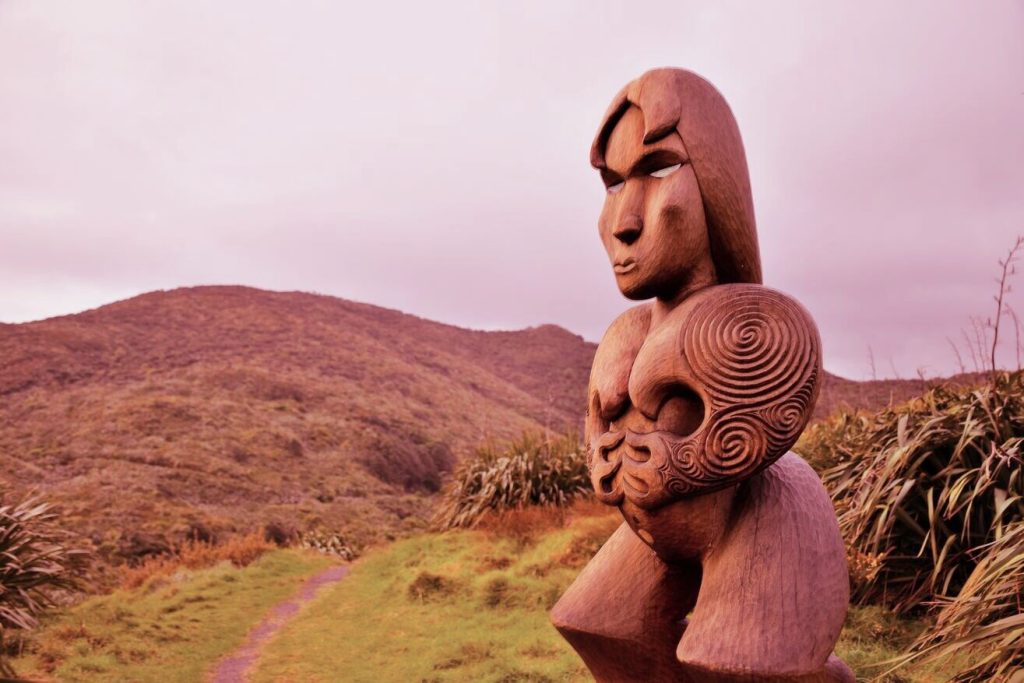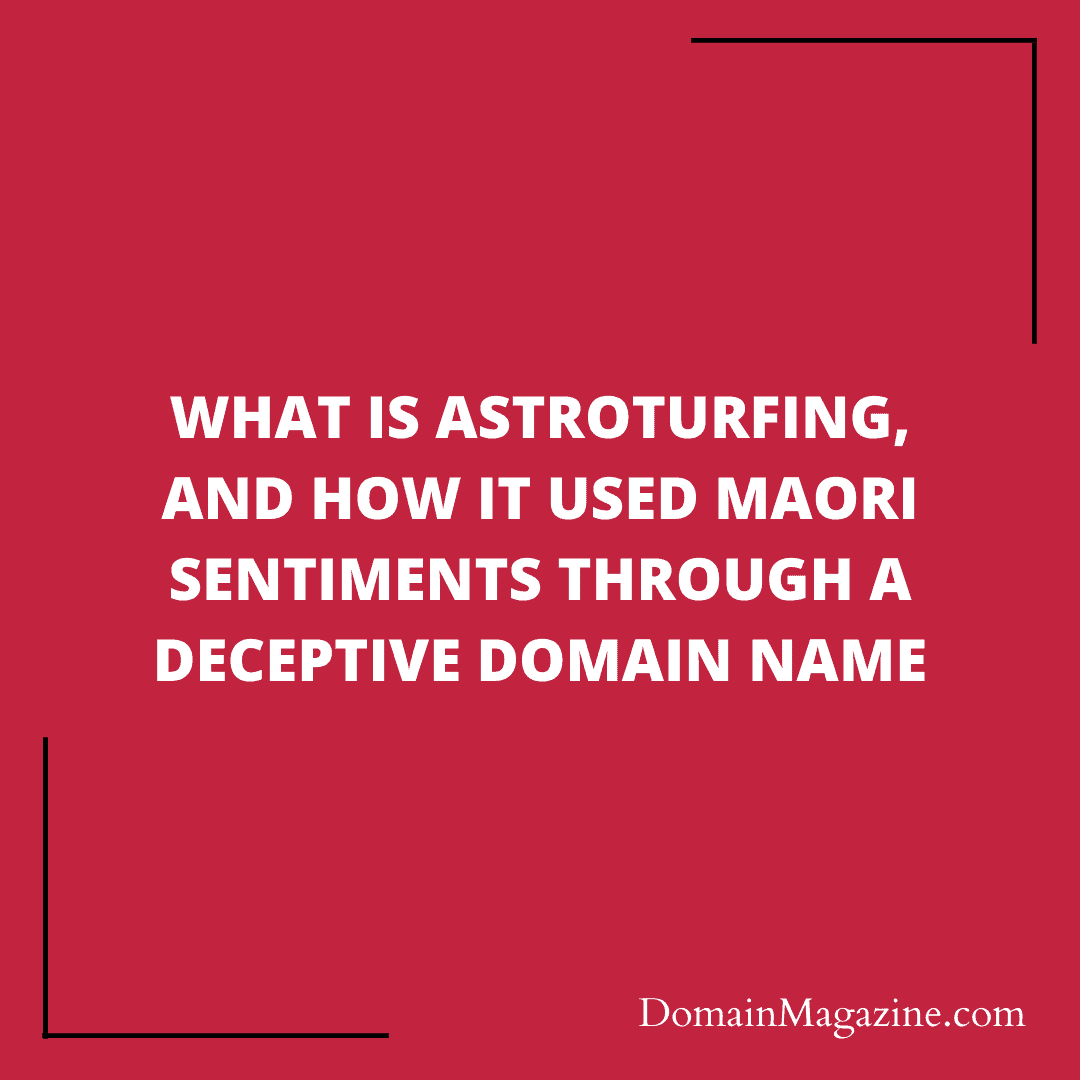Introduction: Unmasking Digital Deception
In today’s digital age, online spaces can sometimes be a breeding ground for deception. This article delves into a phenomenon called astroturfing and explores how a seemingly harmless domain name, ‘WeBelongAotearoa.nz,’ left an unintended impact on Maori sentiments.
Understanding Astroturfing: Fake Grassroots

Imagine a pristine lawn that turns out to be synthetic, cleverly mimicking real grass. In the digital realm, astroturfing is akin to that synthetic grass—a façade that mimics genuine grassroots support. It’s a tactic used by organizations to create the illusion of widespread public backing when, in fact, their efforts are carefully orchestrated.
The Deceptive Domain Name: ‘WeBelongAotearoa.nz’
An Inviting Facade: The website ‘WeBelongAotearoa.nz‘ appeared, at first glance, to be all about unity and inclusiveness. With pictures of people from various backgrounds and messages promoting unity and equality, it seemed like a platform for inclusiveness. Visitors were encouraged to join by providing their name and email address. But, as we’ll discover, there was more to this site than met the eye.
Hidden Ownership and Controversial Ties
In August, a surprising revelation came to light. It turned out that the website was created by ‘Hobson’s Pledge,’ a group known for opposing Māori representation in government and the use of the Māori language. Don Brash, a well-known figure in New Zealand politics, was linked to the site. This disclosure added a layer of intrigue to the story.
A Network of Connections
The management of ‘We Belong Aotearoa’ was entrusted to the Campaign Company, which listed Jordan Williams, co-founder of the Taxpayers’ Union, as a director. This company was also associated with other domain names like IsThisRacist.nz, Bottomline.nz, and EqualHealth.nz, suggesting a broader network of websites with various agendas. Additionally, the Taxpayers’ Union registered the HobsonsPledge.nz domain, highlighting the interconnected nature of these entities.

Opposition to Co-Governance
At the heart of the controversy lies Hobson’s Pledge’s opposition to co-governance, a concept involving shared management, especially concerning environmental resources. The group strongly advocates retaining the official name ‘New Zealand’ rather than ‘Aotearoa New Zealand.’ Although co-governance wasn’t explicitly mentioned on the ‘We Belong Aotearoa’ website, Don Brash argued that it was implied.
Unveiling Deception
Critics, including Māori cultural advisor Dr. Karaitiana Taiuru, raised concerns about the deceptive nature of ‘We Belong Aotearoa.’ They accused the site of cultural appropriation and using misleading tactics to deceive immigrants. Dr. Taiuru pointed out the inappropriate use of a photograph and quote from Dame Whina Cooper, a significant figure in the fight for Te Tiriti rights and against land confiscation.
Financial Investments and Deceptive Tactics
The ‘We Belong Aotearoa’ Facebook page spent a significant amount, between $6,000 and $20,964, on advertisements promoting the website. The tactics employed by ‘We Belong Aotearoa’ bear a striking resemblance to astroturfing, creating an illusion of grassroots support while concealing its true origins. This trend of using deception in political discourse is concerning, as transparency becomes increasingly crucial.
Transparency Matters
Experts like Dylan Reeve, who specializes in conspiracy theories, warn that deceptive tactics are becoming more prevalent in political discussions. In an age where transparency is vital, it’s essential for individuals to question the motives and backers behind campaigns on significant political issues.
A Distinct Entity: ‘Belong Aotearoa’
It’s crucial to distinguish ‘We Belong Aotearoa’ from ‘Belong Aotearoa,’ an organization working with migrants and refugees. The two are unrelated. ‘Belong Aotearoa’ clarified that it had no affiliation with ‘We Belong’ and had only recently become aware of the controversial website.
Conclusion: Navigating Deception in the Digital Landscape
The story of ‘WeBelongAotearoa.nz’ exposes the pitfalls of the digital age, where deceit can often lurk beneath a façade of good intentions. Astroturfing, as demonstrated by this deceptive domain name, serves as a stark reminder of the challenges we face in discerning authenticity from manipulation in online spaces.
While ‘WeBelongAotearoa.nz’ may have faded from the web, its legacy lingers as a testament to the importance of transparency and integrity in digital communication. It reminds us that in an era where appearances can be deceiving, critical thinking and vigilant scrutiny are our best tools for navigating the intricate landscape of the internet.
As we move forward, let’s heed the lessons learned from this digital saga. Let it serve as a call to action for both online users and content creators to uphold the values they profess, to respect cultural sensitivities, and to ensure that the web remains a place where truth prevails over deception.
Source: https://www.newshub.co.nz/home/new-zealand/2023/08/astroturf-accusations-over-we-belong-website-run-by-anti-co-governance-group.html


Join the Discussion